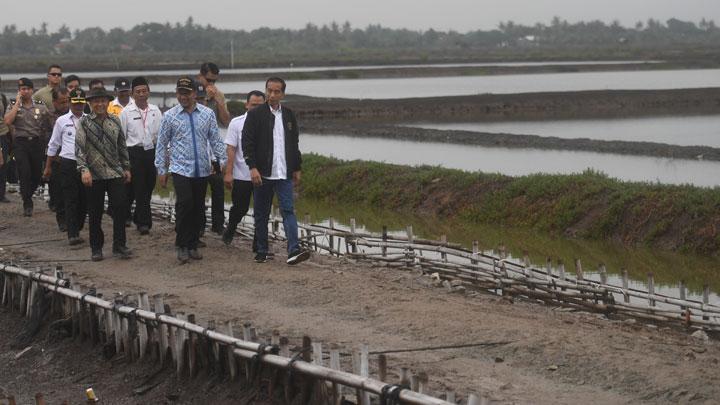Empty Promises on Zero Emissions
Translator
TEMPO
Editor
Laila Afifa
Sabtu, 8 Mei 2021 23:05 WIB

TEMPO.CO, Jakarta - Environmentalists are criticizing President Joko Widodo for his lack of ambition to reduce emissions of greenhouse gases. This is proof that the government does not care about the climate crisis.
Fortunately, President Joko Widodo did not talk incessantly about his commitments when participating in the Climate Summit on Thursday, April 22. If he had made new promises about additional contributions from Indonesia to reduce the emissions of greenhouse gases, the country could have lost face.
Initiated by the United States President Joe Biden, the Climate Conference was planned as proof that the US had returned to the frontline of nations supporting the Paris Agreement. Since 2017, during the administration of Donald Trump, the world's second-largest producer of emissions had withdrawn from global action to mitigate the climate crisis.
Of course, this virtual conference was not only about the return of the US to the Paris Agreement. It was also crucial because now there is strong pressure for every nation to increase its endeavors to reduce the increasingly worsening emissions of greenhouse gases. The 26th Conference of Parties, part of the UN Framework Convention on Climate Change, in Glasgow, Scotland, in November is being proclaimed as an opportunity to spur on a new agreement.
Therefore, when he invited the leaders of 40 nations with a key role in dealing with the climate crisis at the end of March, Biden spoke about the importance of each head of state setting forth stronger commitments than they had made previously. Unfortunately, President Jokowi did not make use of this opportunity.
While Brazilian President Jair Bolsonaro and Chinese leader Xi Jinping set concrete deadlines for their nations to achieve zero emissions, Jokowi did not even touch on this important point. Brazil promised to reach this target in 2050, and China in 2060. This is despite the fact that in Indonesia, the National Development Planning Agency (Bappenas) and the environment and forestry ministry have already made calculations based on a number of scenarios.
Based on the most ambitious scenario, at the 2021 Indonesia Net-Zero summit, Bappenas Chair Suharso Monoarfa said that Indonesia could end carbon emissions by 2045. In order to achieve this, the country would have to make major changes to reduce its dependence on fossil fuels. A large body of research shows that the majority of carbon emissions in Indonesia are from the energy sector.
This may be why President Joko Widodo did not mention any ambitious targets to reduce carbon emissions. We know that the government at present is desperately trying to attract investment in order to spur economic growth. In order to achieve this, the government has even rolled out the Job Creation Law, designed to encourage new businesses and create jobs. In an interview with BBC News in February 2020, Jokowi said that environmental conservation was not yet a priority.
It is true that when he spoke at the Climate Summit, Jokowi continued to underline Indonesia's seriousness in controlling climate change - which he described as a national interest. But a number of claims of success were inaccurate. For example, Jokowi claimed that his policies had succeeded in preventing the conversion of 66 million hectares of forests and peatlands. However, the fact is that 51 million hectares of this area is conserved and protected forest that has always been protected by law.
In his statement, Jokowi did not mention the various development plans, laws and political funding for the energy sector, which clearly favor the interests of coal mining, oil and natural gas tycoons. If this type of development is continued, Indonesia will never be able to achieve the target of net-zero emissions.
Read the Complete Story in Tempo English Magazine




















